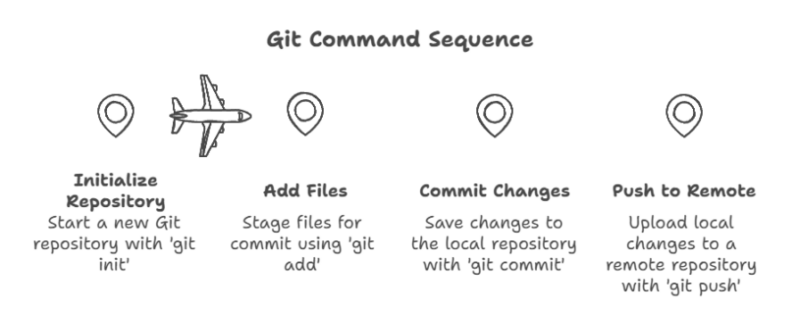-
How to Scan for New Disks in Linux: Quick Detection Guide🔍💽
Ever added a new disk to your server only to find it playing hide-and-seek with your system? 🙈 Or perhaps you’ve hot-swapped a drive and now you’re wondering how to make Linux acknowledge its existence without the dreaded reboot? ⚡️ Well, grab your magnifying glass because today we’re becoming disk detectives! 🕵️♀️💾 The Case of…
-
🚀 Why You Should Transfer Your Domain to Cloudflare (And How to Do It) 🌐
Are you tired of overpaying for domain renewals? Frustrated by limited DNS features? As a fellow sysadmin, I recently made the switch from Namecheap to Cloudflare for domain registration, and I’m here to tell you why it was one of the best technical decisions I’ve made this year. 💯 🛡️ The Cloudflare Advantage: More Than…
-
Keeping Your Services Alive: The Magic of Keepalived 🧙♂️✨
Ever had that heart-stopping moment when your website goes down? 😱 Or that frantic call from users who can’t access your application? 📱❌ High availability doesn’t have to be complicated or expensive. Enter Keepalived: your friendly neighbourhood service guardian! 🦸♂️ What is Keepalived? 🤔 Keepalived is like that reliable friend who always has your back.…
-
Apache2 and MPM: The Silent Heroes of the Web 🌐 🦸♂️
If the internet were a massive city, Apache would be its reliable, ever-present traffic cop – quietly directing billions of requests every day without breaking a sweat. While not as flashy as newer web servers that dominate tech headlines, Apache2 continues to power a significant portion of the web, silently keeping things running smoothly behind…
-
Adventures in LVM: A Tale of Disk Extension 🚀
Ever found yourself running out of disk space on your Linux system? 😱 Well, grab a coffee ☕ and let me tell you about my recent adventure extending a logical volume using LVM (Logical Volume Management). It’s less scary than it sounds, I promise! 🤞 The Initial Problem 🤔 Our story begins with a simple…
-
The Real Multi-Server DevOps Guide – No Cap FR FR 💅
Welcome to my blog! With Grok now free for everyone, I experimented with it to help me word this post in Gen Z slang. It’s so funny and cringe-worthy. XD. Yo fam! Just a Gen Z dev out here messing around with servers and making this guide because why not? Finna deploy some containers and…
-
How to Install Jenkins on Ubuntu/Debian: A Fun and Easy Guide!
Hey there! Want to automate your workflows and build awesome projects with Jenkins? You’re in the right place! In this guide, we’ll install Jenkins, set it up, and get you ready to conquer the CI/CD world—all while having a bit of fun. 🎉 Prerequisites Before we dive into Jenkins, we need to ensure we have:…
-
CI/CD: Making Software Delivery as Smooth as Butter 🧈
I’ve been learning about a DevOps Bootcamp, so here’s a bit about what I learned on CI/CD with an easy-to-understand blog. Imagine you’re a chef in a super-busy kitchen, and your goal is to keep serving up delicious dishes (software updates) to your customers (users). You want to deliver meals fast, make sure they taste…
-
A Fun Git Guide: From ‘git init’ to ‘git push’ 🚀

Whether you’re starting your first project or working on a collaborative masterpiece, Git is your trusty assistant. Let’s break down some essential commands and a few nifty extras, complete with explanations and little tricks to make Git your new favourite tool! 🧙 Starting Out with git init Think of git init as creating a magical…
-
Linux Interview Questions 101: A Comprehensive Guide to Mastering the Essentials – Part 3 (Questions 25-36)
Continuing from the previous set, here are more essential Linux questions and topics that commonly arise in interviews, with practical use cases, troubleshooting tips, and best practices. Q25: How do you declare a variable in a shell script? Answer: Common Use Cases: Q26: What do $?, $#, and $ represent in shell scripting? Answer: Special…
